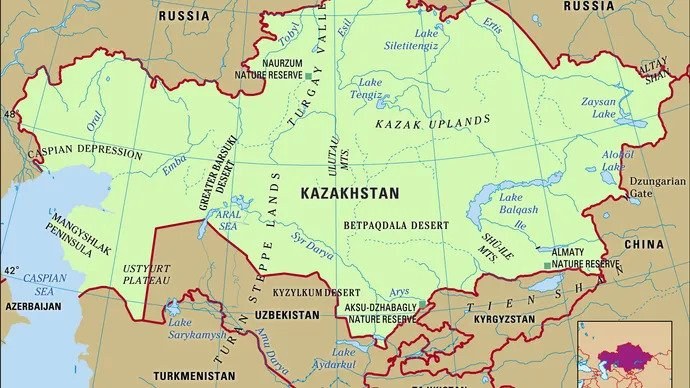China and Kazakhstan
AAEF has introduced two significant but different Asia countries to British Schools
The remarkable economic development in China is well known and this has prompted a need to improve language skills It is through spoken and written language that better communication and understanding is achieved.
The improvement of language skills is of great importance. English is the most widely spoken and written language in the world. It is the language of world trade and communications. English has developed over the course of more than 1,400 years and is the official language in 60 sovereign states. It nevertheless follows Mandarin as the most common language spoken worldwide. Approximately 1.2 billion people, around 16% of the world's population, speak some form of Chinese not only in mainland China but in Asia of which the most spoken is Mandarin, by about 960 million people. Most Asian schools encourage the learning of English as a second language and English speaking teachers are well sort after in Japan, Thailand, South Korea and China.
Kazakhstan, dominates Central Asia economically and politically, generating 60 percent of the region's GDP, primarily through its oil and gas industry; it also has vast mineral resources
Kazakhs speak a Turkic language of the Northwest or Kipchak (Qipchaq) group. Russian, an official language, functions widely alongside Kazakh, which is the state language. Russian is the most widely understood language in the country.
The Kazakhs are a nominally Muslim people. During much of their long nomadic period, the Kazakhs’ adherence to Islam remained informal and permissive.

Unsurprisingly, Kazakhstan is associated with oil and 'the black gold' takes the number one spot in the list. Kazakhstan produces approximately 81 million tons of oil per year. The runner-up in the top ten of Kazakhstani brands is Baikonur, the first and the largest space launch complex in the world.
School Systems
The school systems are different but there are aspects of both systems which each can learn from different Asian methods of teaching mathematics and martial arts are obvious areas.
Press reports indicate that 8,000 primary schools in the UK aided by USD 54.3 million funding will adopt the Chinese method of teaching maths for their students. The move comes after international tests showed that Shanghai students consistently rank towards the on top for maths in the Program for International Student Assessments and 15-year-olds in China are three years ahead of their English counterparts in their ability to solve maths problems. Britain, continually seeks maths teachers from Shanghai as does China, Thailand, Japan and South Korea seek English teachers.
There are 500 boarding schools in the UK and 100,000 in rural mainland China alone. Not only are the numbers hugely different but so are the facilities and teaching methods. The British system is greatly respected by Asian educators and there is an opportunity to assist in Asia and also introduce aspects of the British boarding school system.
Culture
British literature, music, cinema, art, theatre, comedy, media, television, philosophy, architecture and education are important aspects of British culture. Sport is also an important part of British culture; numerous sports originated in the country, including football. The UK has been described as a "cultural superpower" and London has been described as a world cultural capital.
Kazakh traditional clothing is amongst the most colourful and diverse frequently copied in many ways by western designers.
Sport
In the area of sport China’s President Xi Jinping has made clear his love of football. Explaining his personal ambitions for China he listed three, all football-related: to qualify for the World Cup, to host the event and, finally, one day to win it.
Kazakh horseman are among the best in the world and there horses the strongest and toughest
Exchange Programs
AAEF supports tours and cultural exchange programmes in the UK and Asia. Through these programmes, information, advice and networking opportunities are provided with the aim of promoting mutual learning and creating opportunities for further exchange and co-operation in daily life and more specifically in business and creative activities between the UK , China and Kazakhstan.
AAEF promotes cultural learning and organises cultural events with the aim of highlighting British and Asian modern cultural creativity. AAEF Asia Day has become hugely successful in schools, and the Foundation is expanding the scope of promoting Asian languages and culture to other sectors and industries. In addition, AAEF organises talks from renowned entrepreneurs, artists, academics and politicians to schools and beyond.
Overall, the foundation serves as a gateway for students, teachers and others to share, learn and develop outside of their country of origin.
